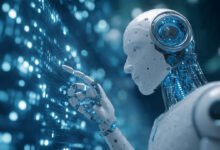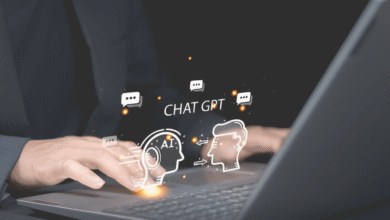The Rise of AI: Artificial Intelligence is Transforming Our World in 2023

AI is rapidly transforming our world and changing the way we live and work. From virtual assistants like Siri and Alexa to self-driving cars and medical diagnosis tools, AI is impacting almost every aspect of our lives. The rise of AI has been fueled by recent advances in computing power, machine learning algorithms, and big data.
This has enabled breakthroughs in areas such as image and speech recognition, natural language processing, and predictive analytics. AI is also becoming more accessible to businesses and individuals, thanks to the proliferation of cloud-based AI platforms, open-source software, and off-the-shelf AI tools. This article will explore the rise of AI, its impact on our society and economy, and the opportunities and challenges it presents.
The Rise of AI
AI has been around for decades, but recent advances in computing power, machine learning algorithms, and big data have fueled its explosive growth. Today, AI is used in a variety of applications, including natural language processing, computer vision, robotics, and autonomous systems.
One of the most significant developments in AI has been the emergence of deep learning, a subset of machine learning that uses artificial neural networks to learn from data. Deep learning has enabled breakthroughs in areas such as image and speech recognition, natural language processing, and predictive analytics.
AI is also becoming more accessible to businesses and individuals, thanks to the proliferation of cloud-based AI platforms, open-source software, and off-the-shelf AI tools. This democratization of AI is allowing more organizations to leverage AI for their business operations, and is creating new opportunities for startups and entrepreneurs.
Impact on Society and Economy
AI is already having a significant impact on our society and economy. For example, AI-powered chatbots and virtual assistants are improving customer service, while AI-driven predictive maintenance is helping to reduce downtime in industrial settings. In healthcare, AI is being used to diagnose diseases, personalize treatment plans, and develop new drugs.
AI is also changing the nature of work, with some jobs being replaced by automation while new jobs are being created in areas such as data science, machine learning engineering, and AI ethics. However, the impact of AI on the job market is not yet fully understood, and there are concerns that AI could lead to significant job displacement and exacerbate inequality.
Opportunities and Challenges
AI presents many opportunities for businesses and society, but also poses significant challenges. One of the biggest challenges is ensuring that AI is developed and used in an ethical and responsible manner. This includes addressing issues such as bias, transparency, and accountability in AI systems.
Another challenge is ensuring that everyone has access to the benefits of AI, regardless of their socioeconomic status. This requires investing in education and training programs to develop the skills needed for the jobs of the future, and ensuring that AI is developed in a way that benefits all members of society.
Read more: AI Trading Apps for the Finest Trading: Top 10
Conclusion:
conclusion, the rise of AI is transforming our world and has the potential to create significant economic and social benefits. While there are concerns about the impact of AI on the job market and its potential to exacerbate inequality, these challenges can be addressed by investing in education and training programs, developing AI in an ethical and responsible manner, and ensuring that everyone has access to the benefits of AI.
As AI continues to evolve and become more advanced, it is essential that we work together to harness its power for the greater good, and to ensure that it is used to create a better future for all. By doing so, we can unlock the full potential of AI and use it to solve some of the world’s most pressing problems, from healthcare to climate change, and beyond












One Comment